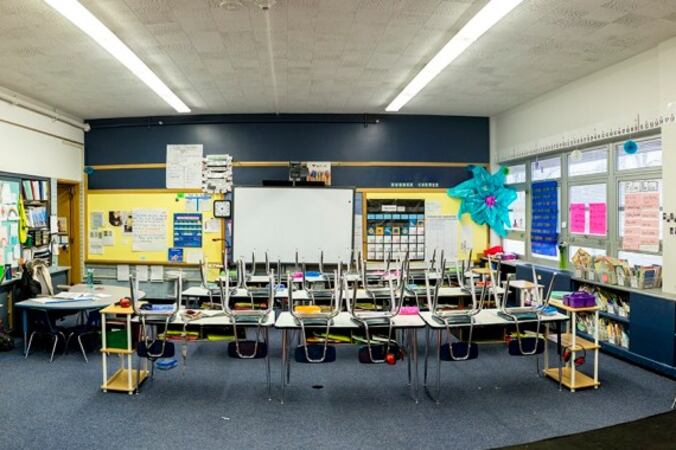Declaring that Michigan’s education system is “inequitable and provides unequal opportunity,” the state’s commission on civil rights is urging a host of changes to ensure that all students have a shot at success no matter where they live or their economic status.
Among the many fixes the commission is encouraging: Changing Michigan’s funding system so that it provides additional funding for the most vulnerable students, educating school staff on implicit bias, expanding early childhood opportunities, allowing traditional schools to keep a portion of the funding they lose when students leave for charter schools, and eliminating “cutthroat competition,” that has districts fighting for students and teachers.
“Education is the key to unlocking a lifetime of opportunities and is also a basic civil right,” Stacie Clayton, chair of the Michigan Civil Rights Commission, said during a meeting Wednesday.
But during hearings the commission held in 2018 and 2019 on education equity issues, she said, a common theme members heard was that the quality of education depends greatly on where students live.
“Residency is dependent on household income which is in turn dependent on opportunities provided to families which is also dependent on the parents’ own race and background,” Clayton said. “This circular connectivity results in Michigan’s education system being an unfair playing field.”
The recommendations are included in a report, “Education Equity in Michigan,” that the commission accepted and approved at its Wednesday meeting. The report highlights equity issues that have long plagued schools in the state.
It was released on the same day more than a dozen community leaders in Michigan released a statement urging more funding equity for Michigan schools. The statement was in response to Gov. Gretchen Whitmer signing the state’s school aid budget Wednesday.
“More … must be done in the future to address the unique learning needs of students who have long been underserved and disproportionately impacted by the health, economic and educational crises resulting from COVID-19,” the statement said. “This includes students of color, students with disabilities, English learners, and students from low-income families.”
The equity in education report highlighted similar concerns.
Jeff Sakwa, a commissioner from Birmingham, urged action, saying that “the report is great,” but won’t mean anything if none of the recommendations are implemented.
“This is Day One. We’ve got to do it,” Sakwa said.
The 71-page report is full of recommendations. Ten of them are directed toward the Council of Local Governments and Education on Equity and Inclusion, which is housed in the Michigan Department of Civil Rights. The latter is overseen by the commission.
State Superintendent Michael Rice, who helms the Michigan Department of Education, said some of the findings in the report mirror issues that were included last month in a strategic plan adopted by the state education board.
He echoed the importance of taking on the work of improving equity in the state.
“It’s hard to have a fair shake in this 21st century without education and without a strong education,” Rice said.
Here are the recommendations the council on equity and inclusion is being asked to tackle. Read the full report here.
- Develop a statewide educational equity plan to enhance policies, accountability and opportunities for everyone.
- Ensure that all data collected by state and county government entities be disaggregated by race and ethnicity.
- Encourage schools across the state to create local school equity plans and contribute information and resources to encourage and support equitable practices and opportunities for schools.
- Host periodic professional development training workshops and an annual “best practices in education equity” conference.
- Provide year-round advice and coaching on cultural competency, race and equity education.
- Increase internet access for students and families and develop an easily accessible electronic outreach and inclusion model that is available to everyone involved in the education process.
- Support a well-resourced and quality teacher training program (through universities and colleges), encouraging diversity in its teaching roles and student enrollment.
- Work to encourage the placement of affordable public housing only in school districts that are educationally successful and can support new students who have additional needs as the result of prior inadequate educational opportunity.
- Work with other entities to recognize the overlapping roles that housing discrimination, employment discrimination, environmental racism, and other existing racial disparities play in perpetuating educational inequity.
- Create a multicultural, student-led component of the council to engage students and parents/guardians on the local level. Many students are interested in equity and can help make strides to remove barriers and reshape equity policies and practices that inhibit students of color.







